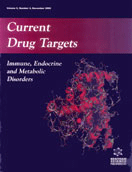Abstract
Caspases are intracellular cysteine proteases that mediate cell death and inflammation. Caspase-3 is a major mediator of both apoptotic and necrotic cell death. Caspase-1 mediates inflammation though the activation of the cytokines interleukin-1β (IL-1β) and interleukin-18 (IL-18). Increases in both caspase-1 and -3 have been described in ischemic injury to various organs including brain, heart and kidney. Both pharmacological inhibitors and genetic approaches have been used to inhibit caspases in vivo. Pancaspase inhibitors protect against ischemic injury in brain, heart and kidney. Pancaspase inhibition also reduces cold preservation injury due to apoptosis in liver endothelial cells and prolongs animal survival after orthotopic liver transplantation. Caspase-1 inhibition or caspase-1 deficiency protects against ischemic injury in brain, heart and kidney models of ischemia. Specifically, impaired IL-18 processing protects caspase-1-deficient mice from ischemic acute renal failure. This review focuses on studies of caspase-1 and pancaspase inhibition in ischemic injury to brain, heart and kidney. In addition, the studies of pancaspase inhibition in cold ischemic injury and organ preservation will be reviewed. The therapeutic potential of caspase inhibition in ischemic injury will be discussed.
Keywords: caspases, apoptosis, necrosis, brain, heart, kidney, ischemia, inhibitors
 2
2














